Early Years
At St Michael’s, we are passionate about ensuring that our pupils develop a solid foundation for learning that provides them with the best possible start to life. We aim to give each child a happy, positive and enjoyable start to their school life within a safe, secure and stimulating environment.
Early Excellence Partner School
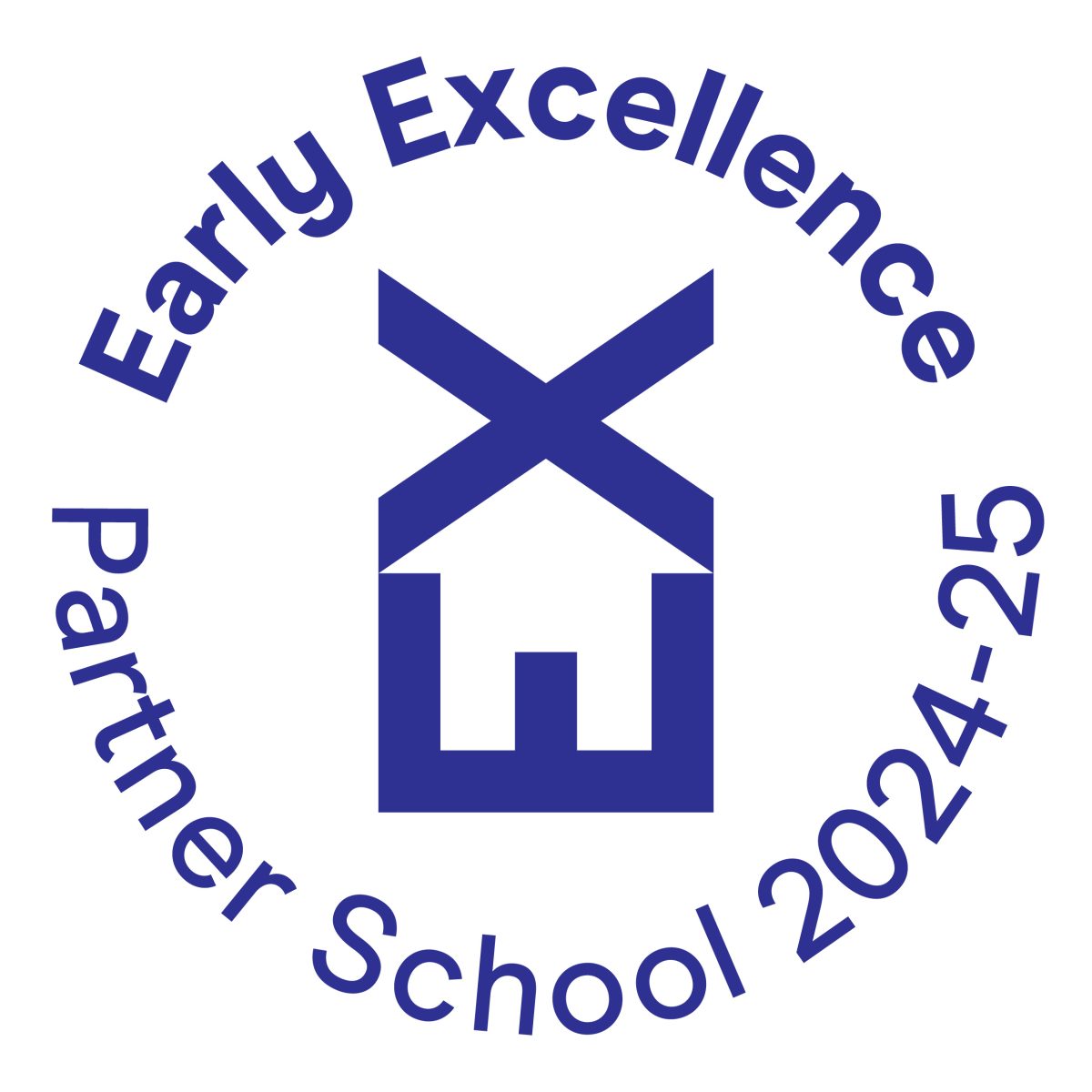
As a school we are delighted to be recognised by Early Excellence as a Partner School for 2024/25, to host events and share good practice in our area.
Early Excellence are a highly regarded organisation that promote inspirational learning, offering School Improvement & Bespoke Consultancy as well as educational resource solutions focused on early primary EYFS & KS1.
Our Early Years Curriculum
Our curriculum documents below display the progression of knowledge and skills throughout Nursery and Reception. Outcomes for each area of learning are taken from the Educational Programmes stated within the Statutory Framework for the Early Years Foundation Stage. This document, in addition to Birth to 5 Matters and Development Matters, is used to ensure that learning and developmental needs are met across all areas of learning. Our curriculum reflects age-related expectations at key points over the year. However, we are mindful that all children have unique starting points. Therefore, we assess them using the Birth to 5 Matters guidance and then adapt our curriculum accordingly to meet their individual needs. Progression from both Nursery and Reception into Year 1 and beyond have been considered to ensure curriculum coverage so that each child thrives on their individual educational journey through our school.
Our curriculum is based on developing the key knowledge and skills in the Statutory Framework for the Early Years Foundation Stage. We ensure that the learning opportunities and experiences we provide are clearly linked to both the Prime (Personal, Social and Emotional Development, Communication and Language and Physical Development) and Specific (Literacy, Mathematics, Understanding the World and Expressive Arts and Design) Areas of Learning.
How is Our Curriculum Taught?
Our Early Years curriculum and learning environment is carefully planned to support learning through play. Our teaching and learning approach comprises of three layers: continuous provision, enhanced provision and focus tasks. This sits within our own school curriculum model (see below) which ensures that our pupils know more, remember more and can do more. Pupils are supported to build upon prior knowledge, retrieve taught knowledge and then apply their knowledge and skills in provision and focus tasks.
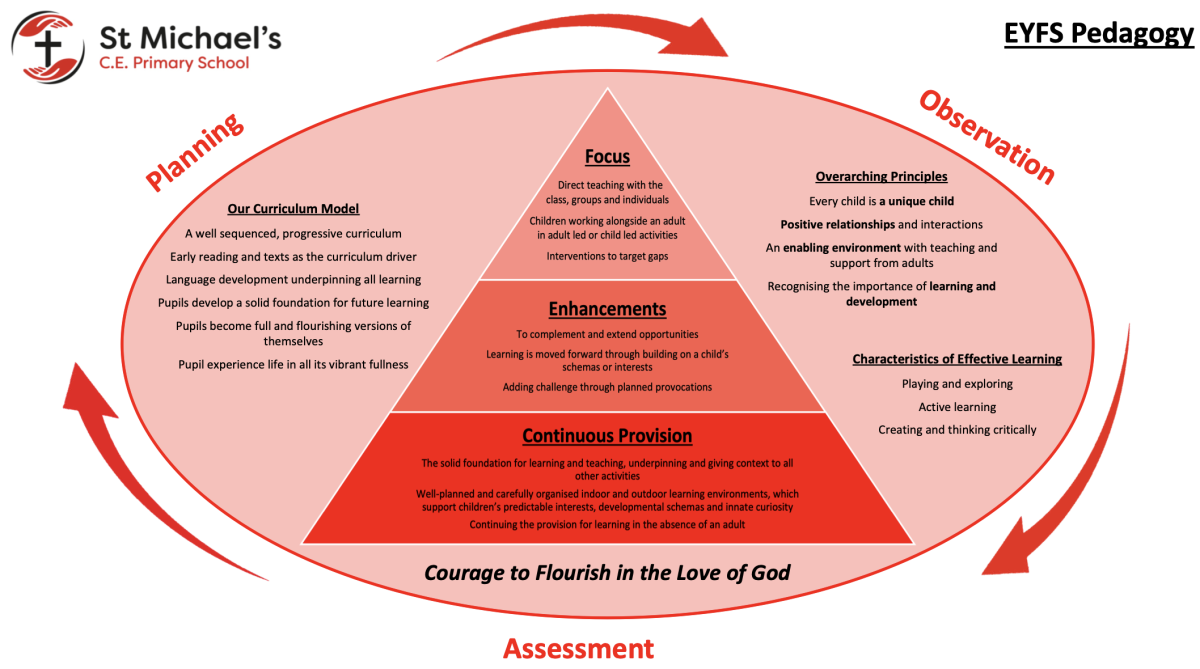
The four overarching principles of the EYFS underpin our practice (see below). We understand that all children develop in different ways and development is not a linear or automatic process. It depends on each unique child having opportunities to interact in positive relationships and enabling environments that encourage their engagement and recognise their strengths. All children have agency and curiosity to learn, and will interact with other people and the world around them in different ways. Understanding these different ways of knowing about the world is central to understanding who children are and how best to support their development.
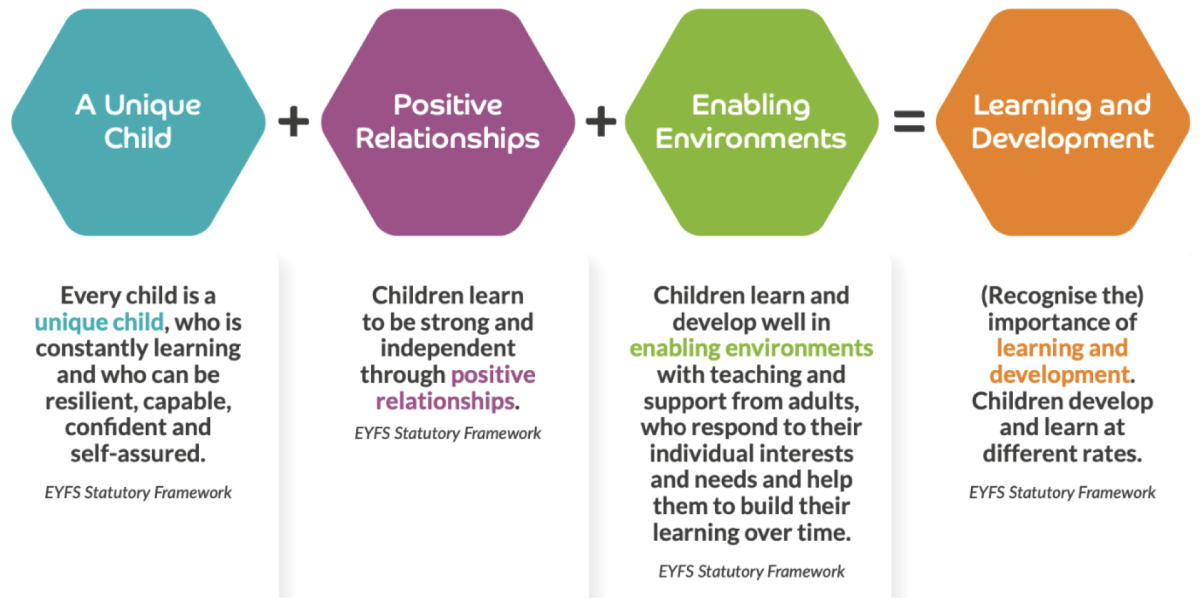
Layer 1: Continuous Provision

Our pupils have access to a broad range of equipment, resources and materials to help prompt and enable their play through continuous provision. Continuous provision provides the basis for our rich and meaningful curriculum. It consists of a well-planned and carefully organised indoor and outdoor learning environment, which supports children’s predictable interests, developmental schemas and innate curiosity.
Layer 2: Enhanced Provision

Layered on top of continuous provision is enhanced provision, which is used to complement and extend opportunities. We use enhancements as a way of extending and further enriching children’s learning. Enhanced provision extends learning by enabling children to further develop their ideas and interests. New resources, books, equipment, artefacts or activities are made available for a fixed period of time in response to what teachers have observed children need next.
Layer 3: Focus Tasks

These are mostly adult planned and led but may also be initiated by the child if they have shown a particular interest in an activity. These involve direct teaching in either small groups, whole class or 1:1. In both Nursery and Reception, literacy and maths focus activities are planned and taught each week alongside an adult. Focus activities target specific knowledge, skills or gaps in learning and may be designed to offer challenge to the cohort.
Our Learning Environment
Our learning environment is planned to facilitate the development of the characteristics of effective learning and is pivotal to the learning and assessment we provide. We view the classroom environment (indoors and outdoors) as the child’s third teacher, and it is therefore carefully designed to support the individual’s development of skills and will be continually evaluated regularly throughout the year.
We have organised continuous provision by dividing the classrooms and outdoor area into smaller distinct areas. In each of these areas, a carefully selected and linked range of resources is presented in a way which is appealing and accessible to the children and which maximises opportunities for learning across the curriculum. We have decided on key areas within the classrooms through observation and assessment of cohort needs.
In the outdoor area, the space is organised in a similar way to the indoor classroom so that children have a range of opportunities organised into different zones. The environment supports an active approach to learning, helping our children to experience many things for the first time, as well as repeat, practice and refine what they already know and can do. Real, sensory and experiential activities are key and in our rich environment, our children are able to explore and experiment to make sense of their world.
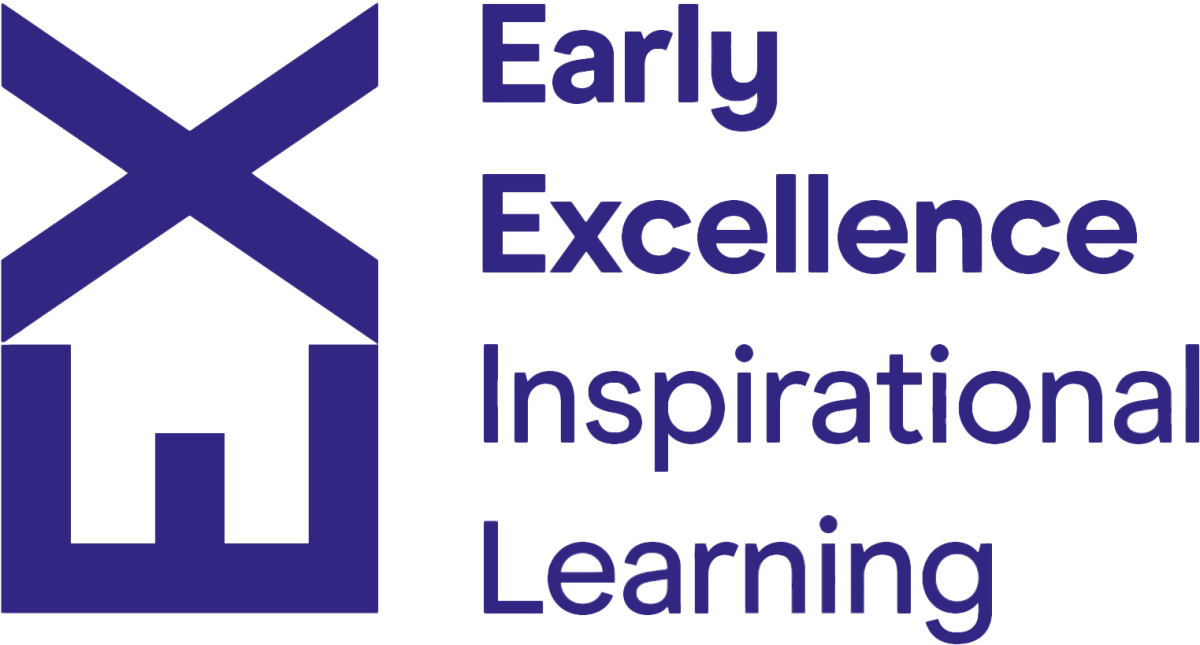
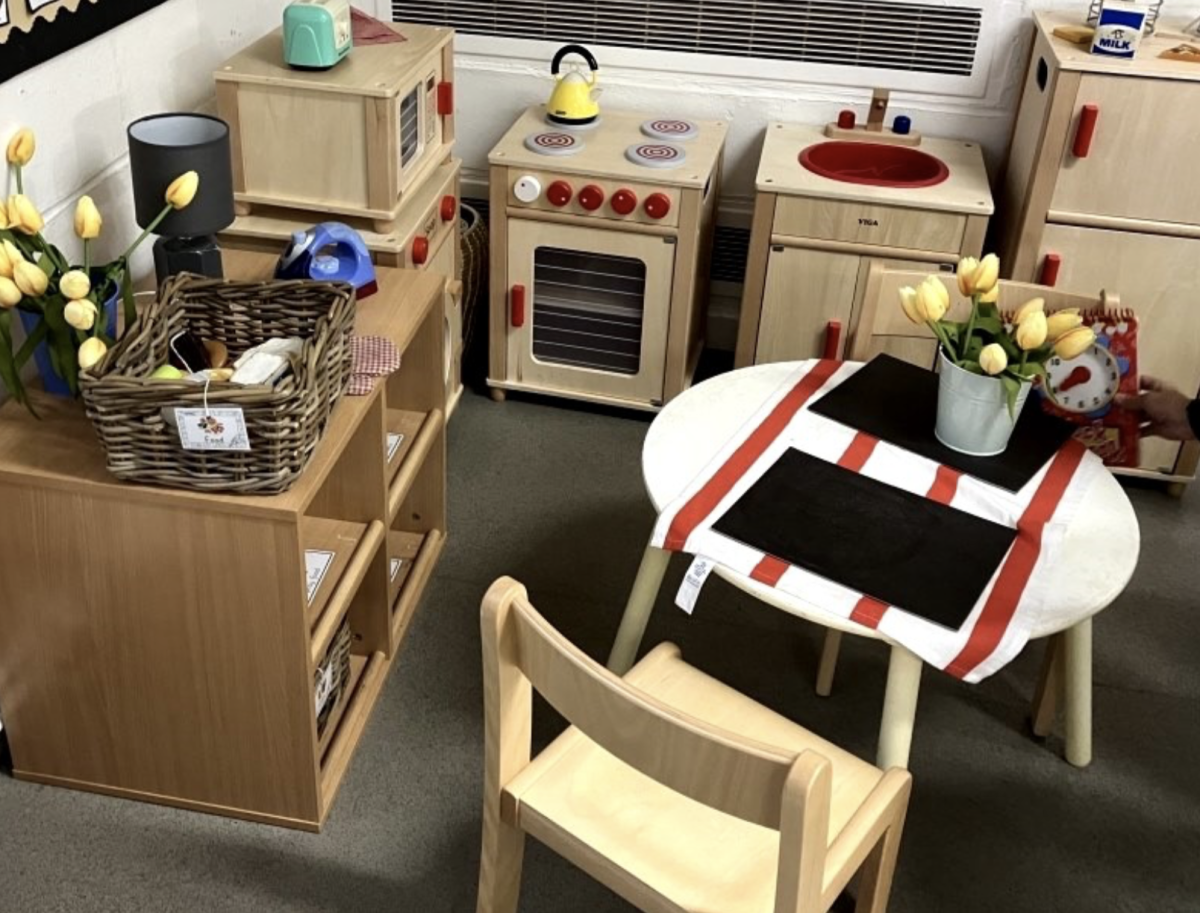
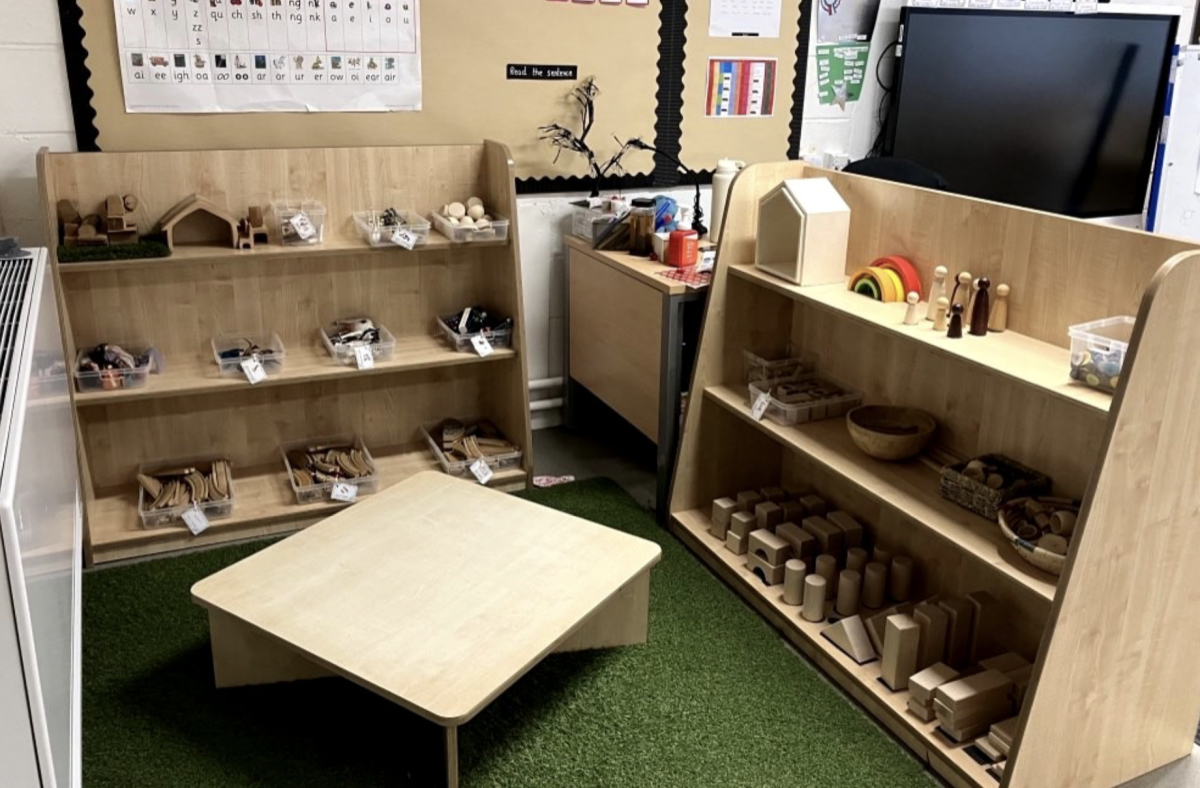
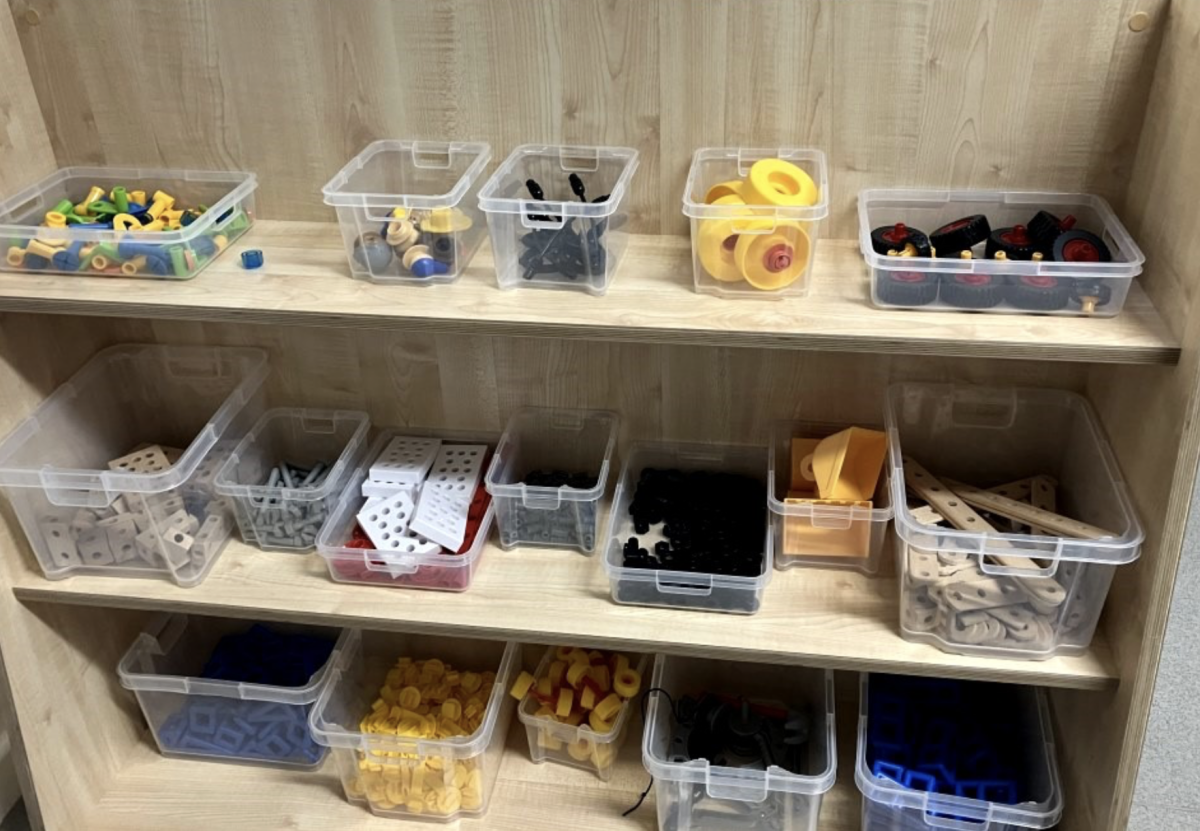
As part of our ongoing commitment to improving the educational experience for our youngest learners, we have collaborated with Early Excellence to enhance our provision in the Reception class, and we are delighted with the results!
This partnership has allowed us to implement innovative strategies and high-quality practises that focus on the development of communication and language skills, which are essential for our pupils’ overall learning and growth. By prioritising these areas, we are confident that our efforts will lead to significant improvements in outcomes for all children. The insights gained from this collaboration not only enrich our curriculum but also foster a nurturing environment where every child can thrive and flourish.
Early Years Assessment
The statutory Reception Baseline Assessment is a short, interactive and practical assessment of your child’s early literacy, communication, language and mathematics skills when they begin school, using materials that most children of your child’s age will be familiar with. It will provide an opportunity for your child to have valuable one-to-one time with their teacher at an early stage, so the teacher can get to know your child better. It will provide a helpful snapshot of where your child is when they enter Reception so they can be supported in the most appropriate way.
The Early Learning Goals (ELGs) are the goals or targets children are expected to achieve at the end of their Reception year. Children are assessed against whether they demonstrate these goals at the end of the Early Years Foundation Stage. There are 17 ELGs across all the areas of learning.
If you have any further questions regarding Early Years, please speak to Mr Bhatti who is our Deputy Headteacher or Miss Sturdy who is our Early Years Phase Leader.